Archive: Harlem's Finishing School for Young Ladies, 2004
Posting this gallery on September 11, a national day of mourning and reflection, felt wrong. September 12, though, feels appropriate. These images, to me, are playful yet serious, hopeful and earnest.
Teaching comportment and fork-handling skills to young women of color may seem retrograde and bourgeois. But these Saturday-morning activities were simply vehicles for a larger project: giving these girls one more set of tools (or sharpening those they already possessed) to move and succeed in the parallel American culture where the greatest economic opportunity exists.
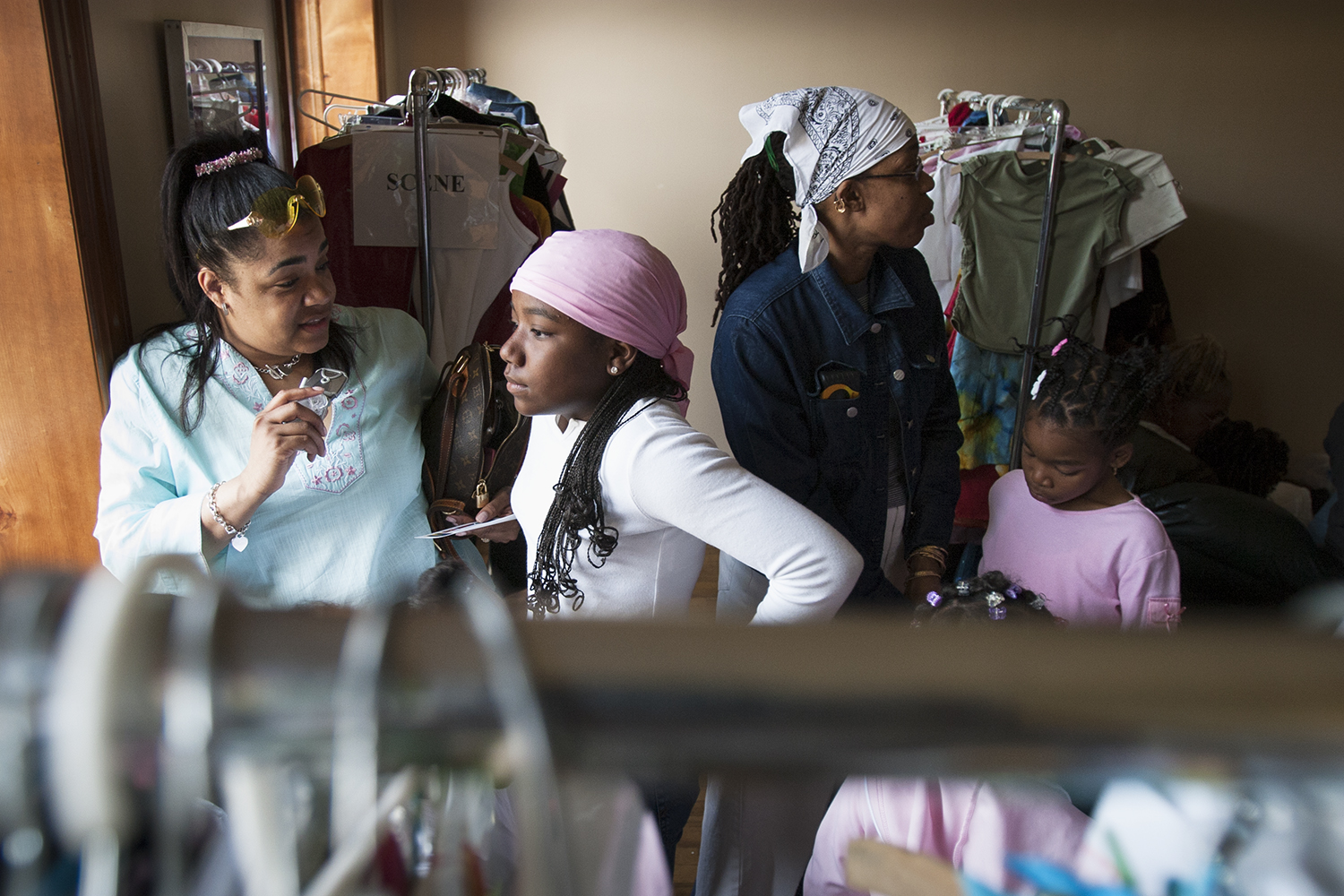
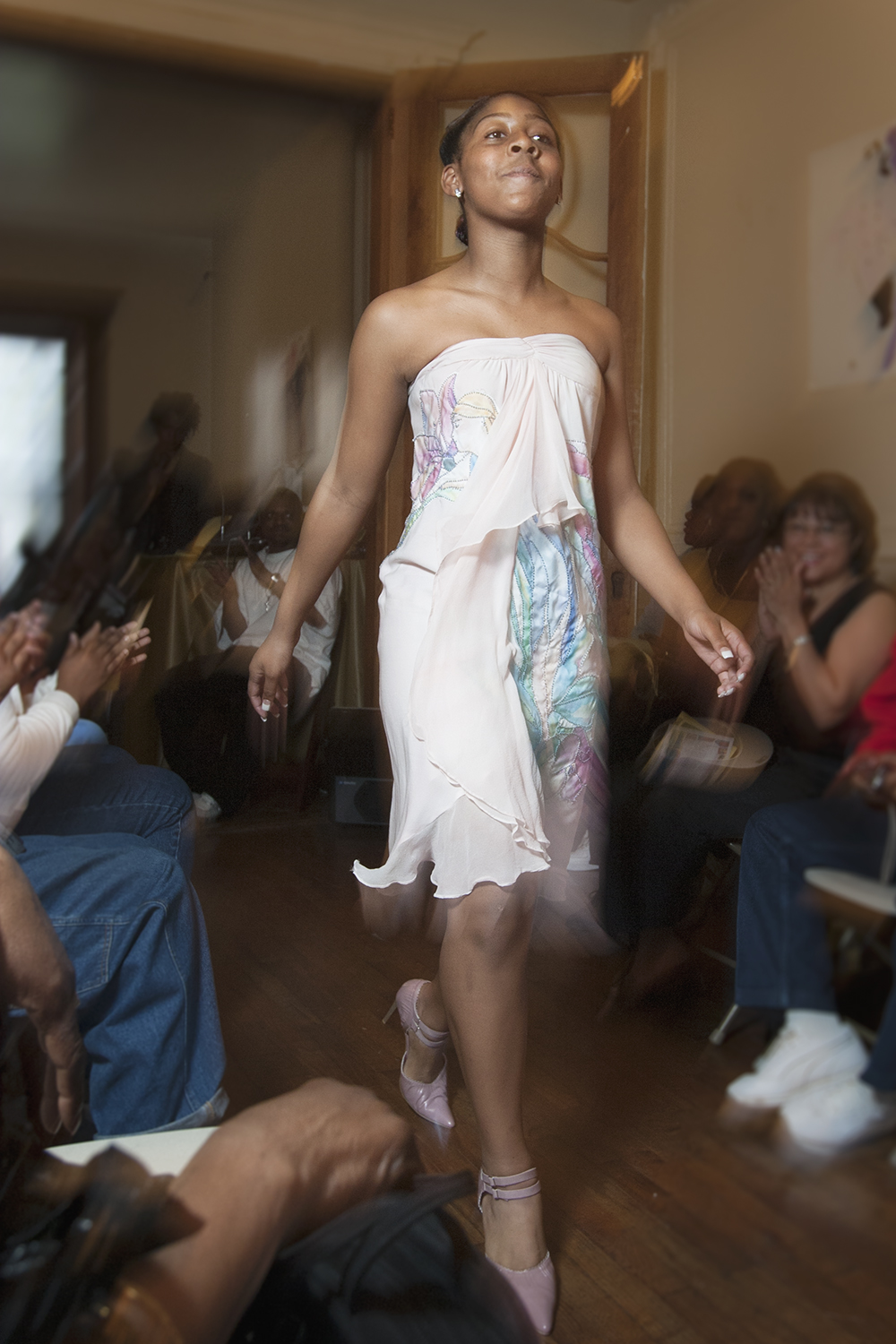
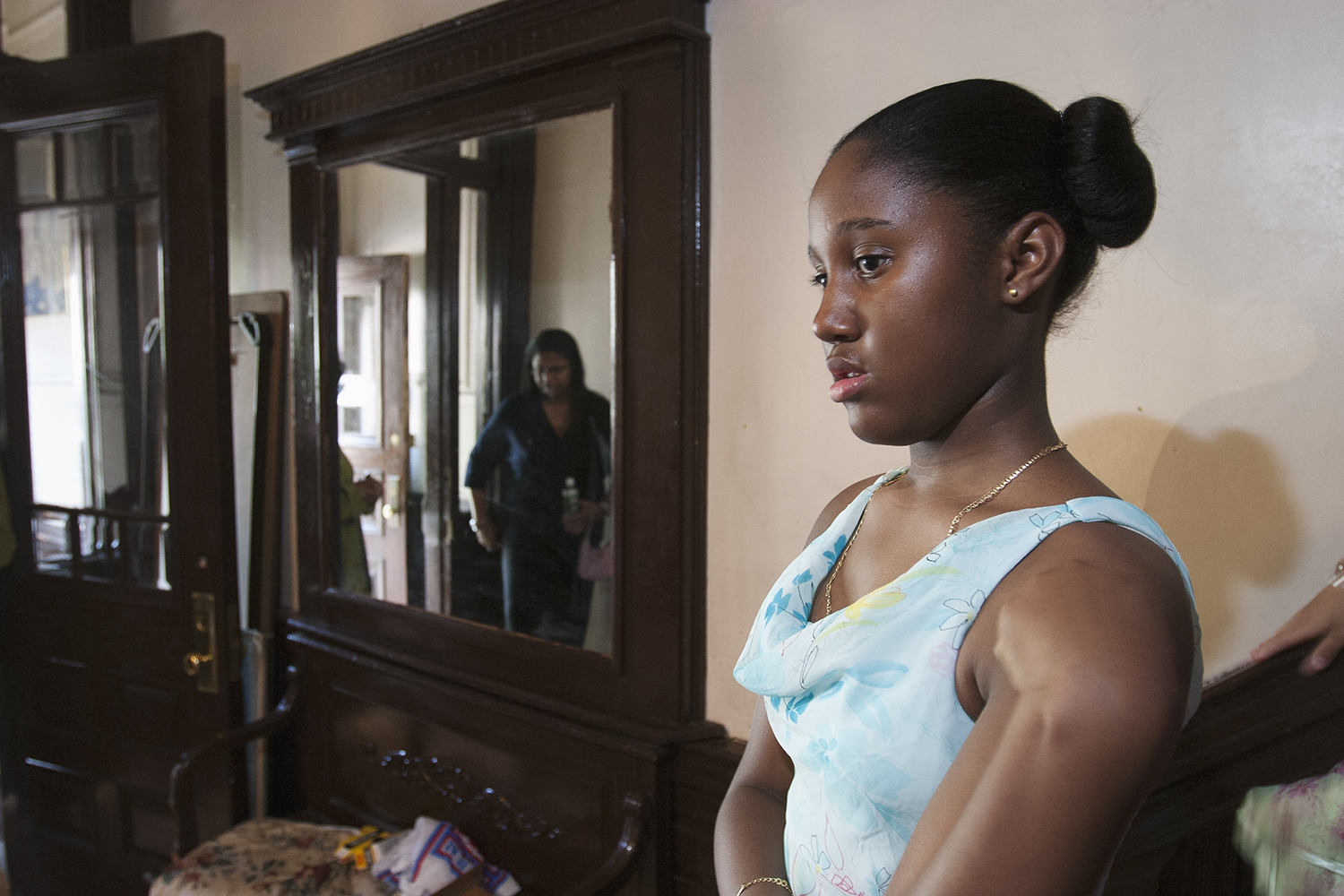
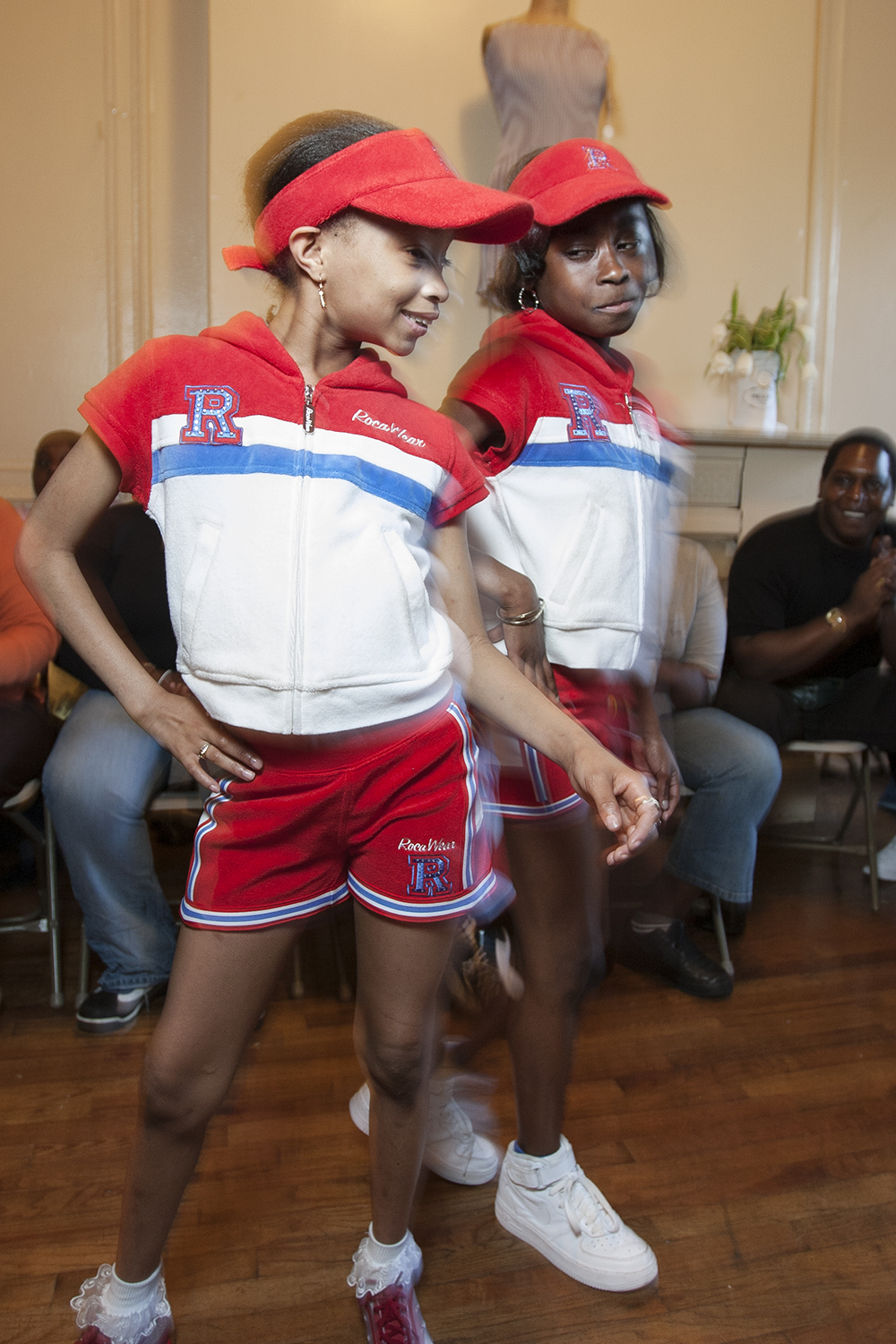
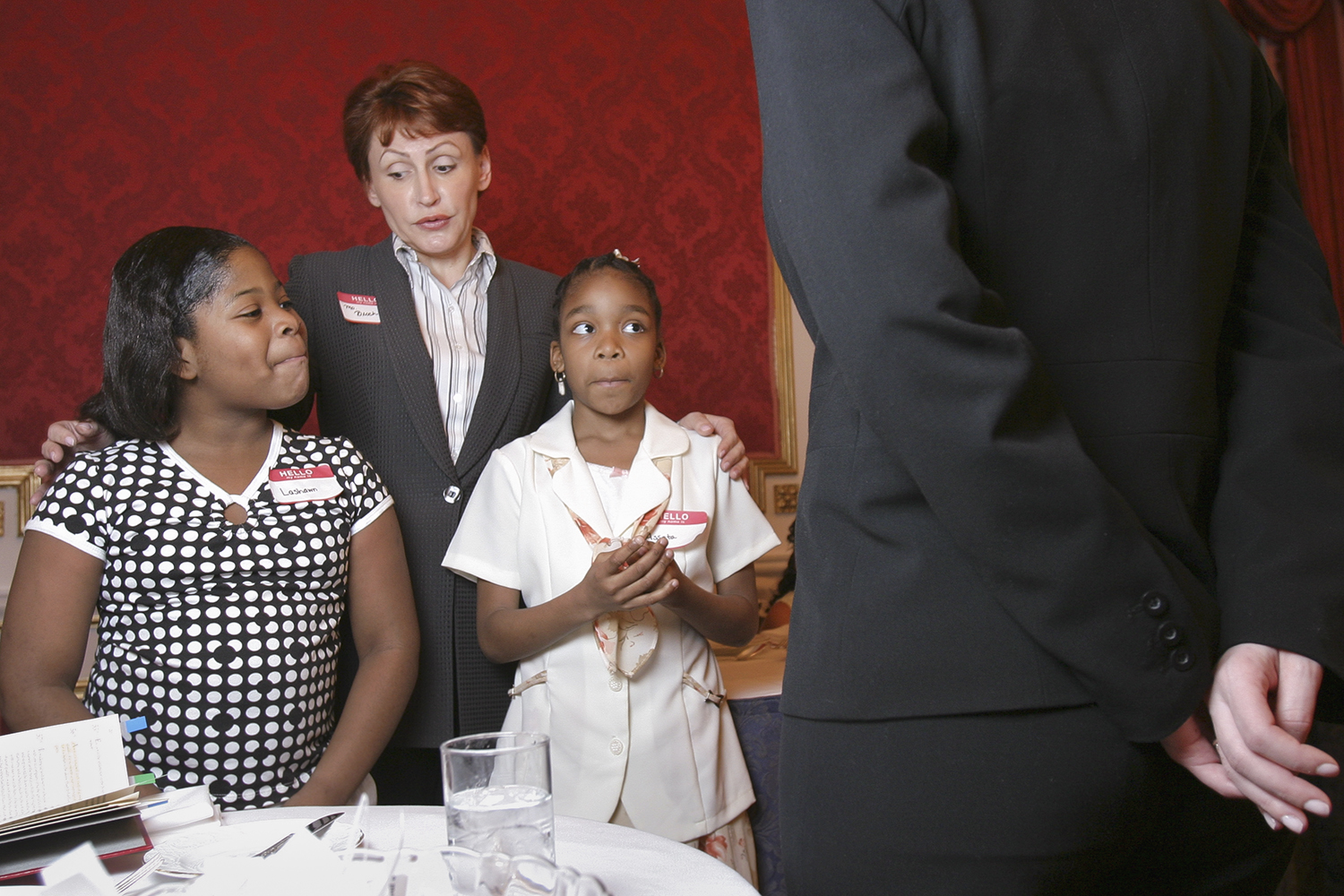
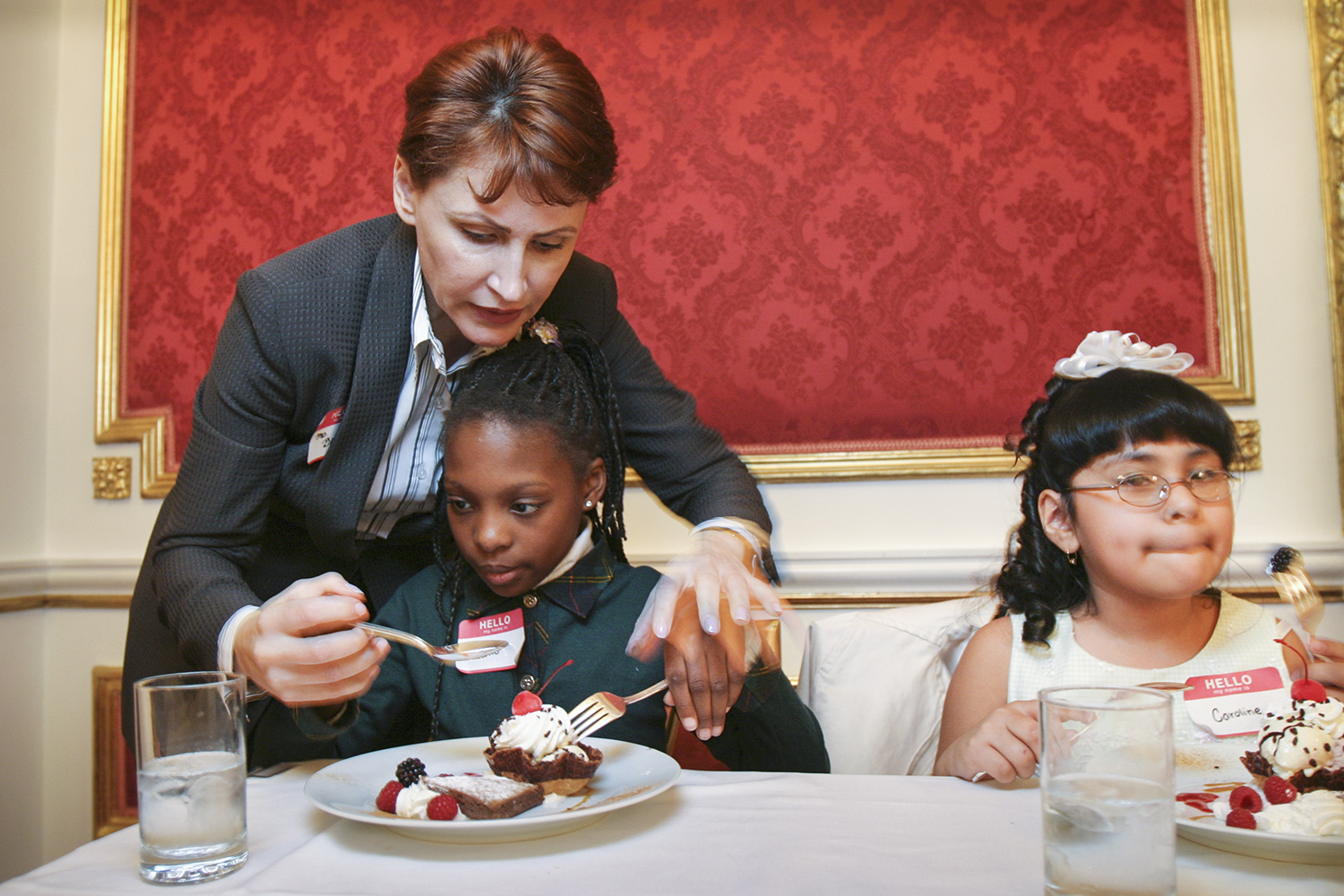

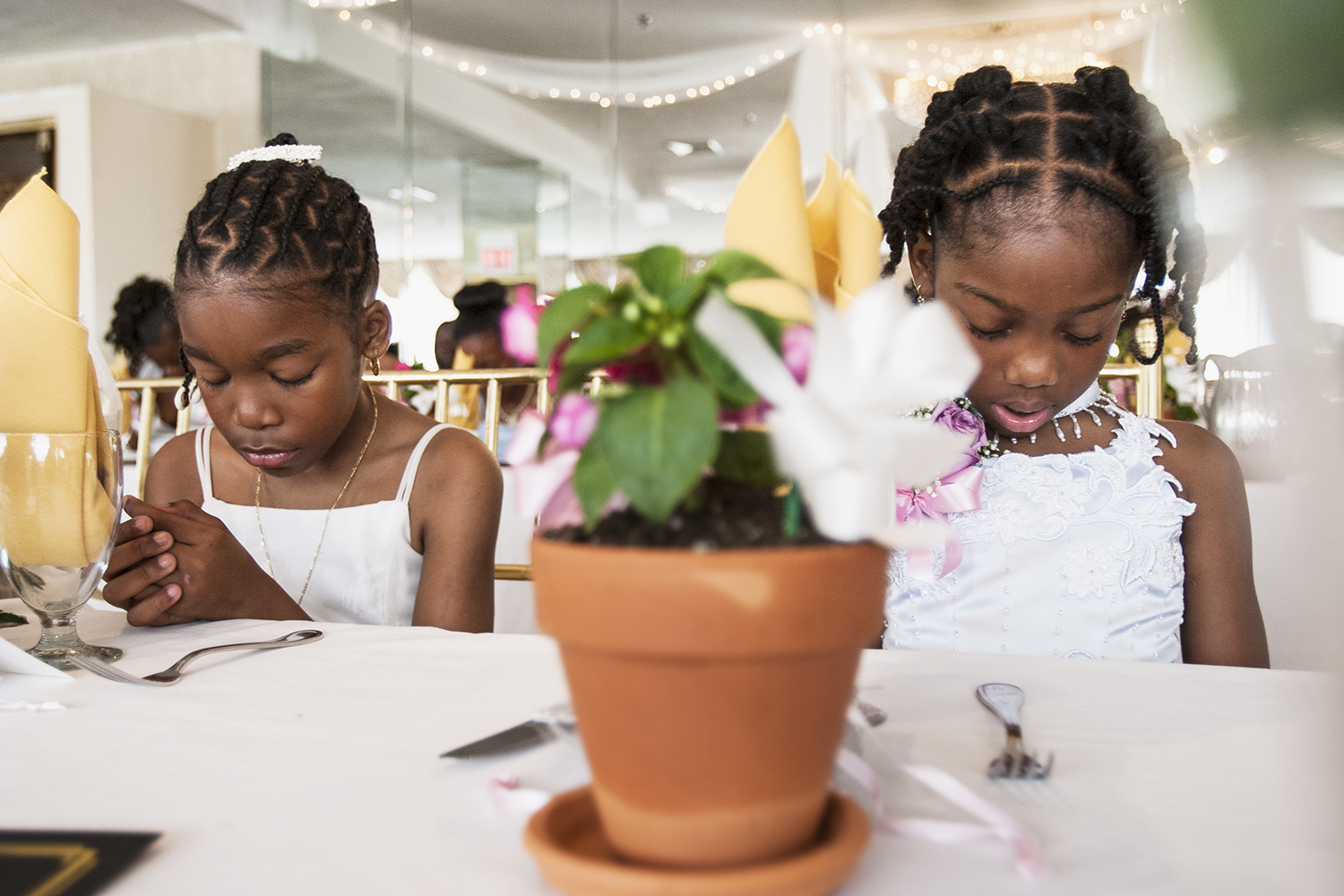
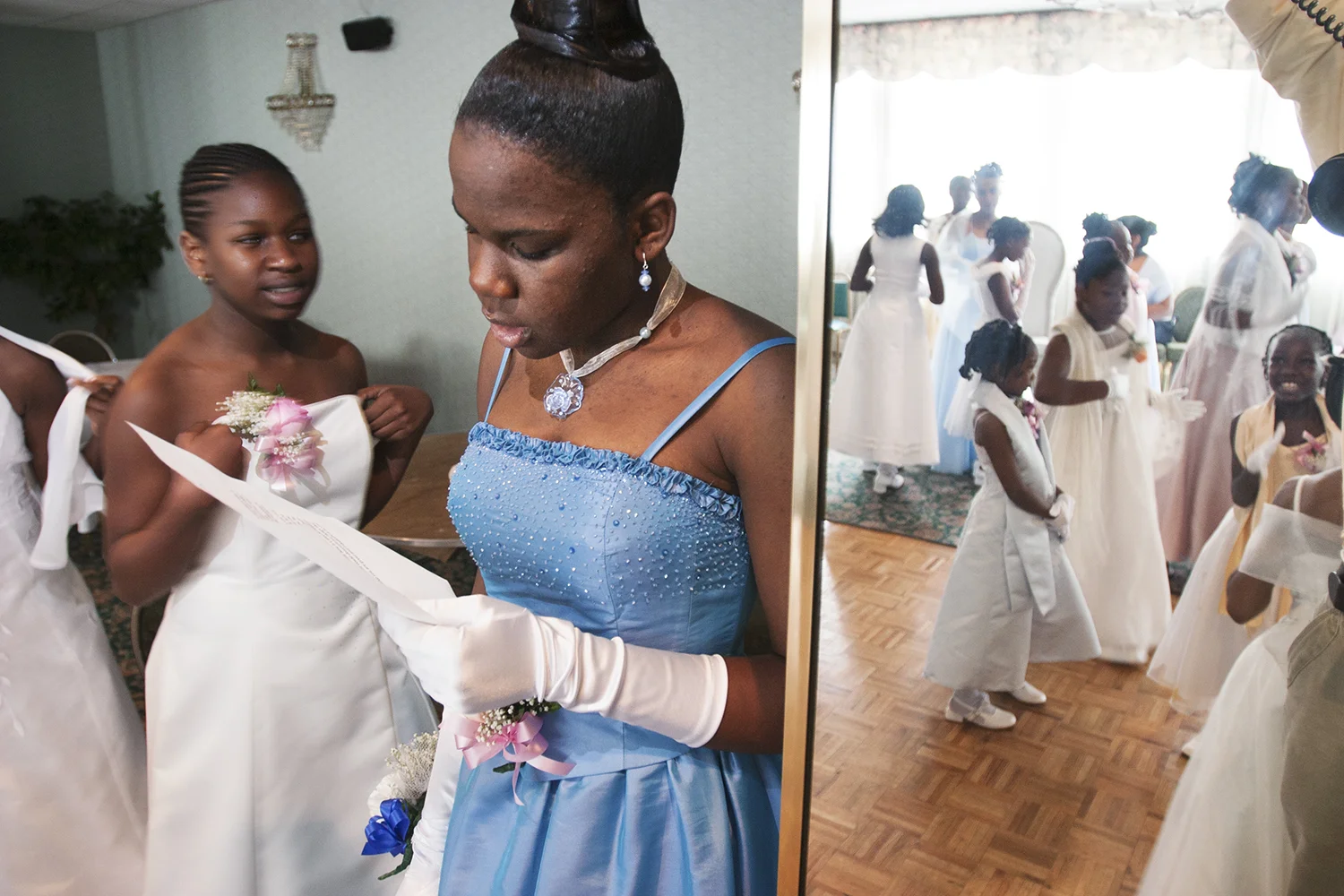
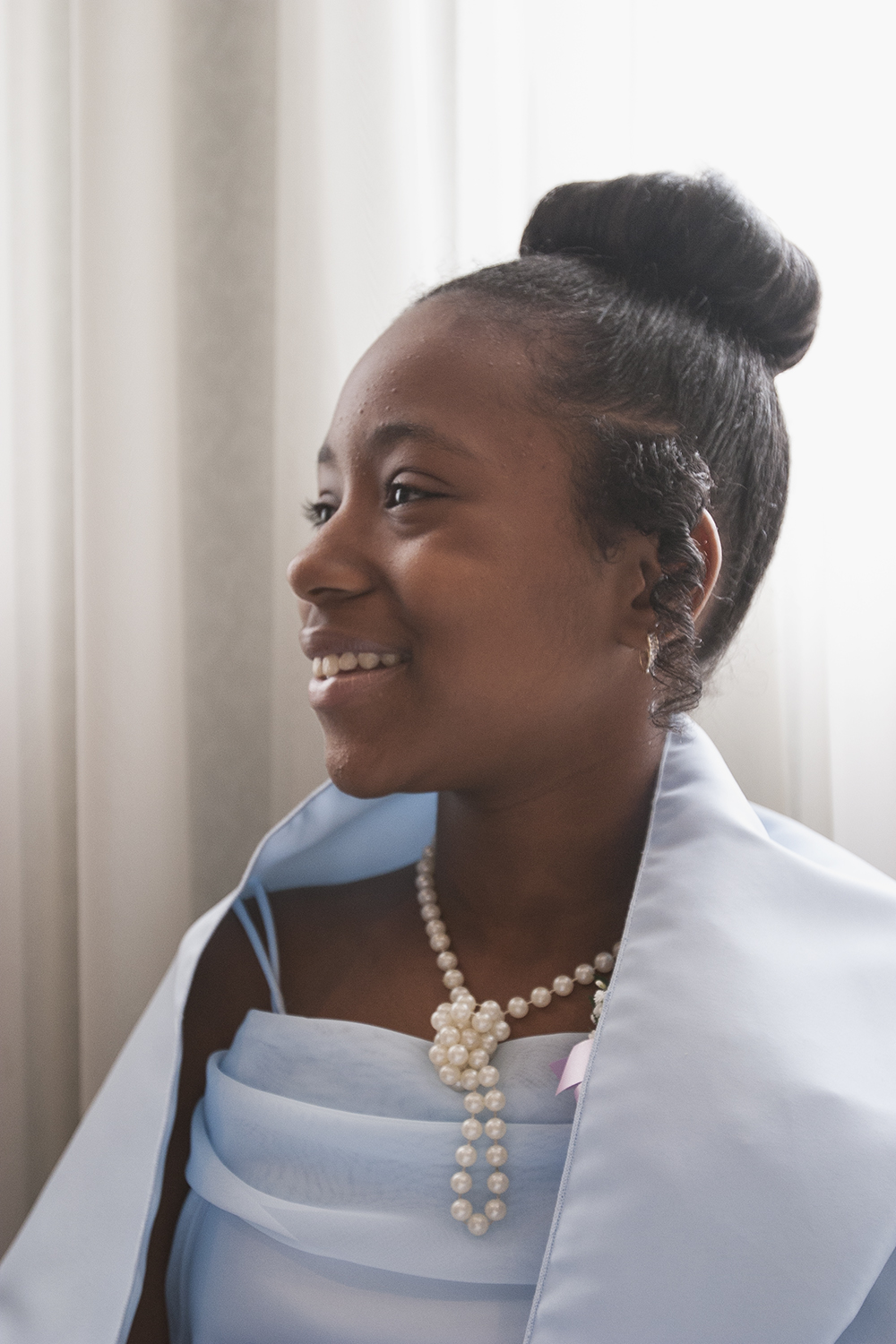
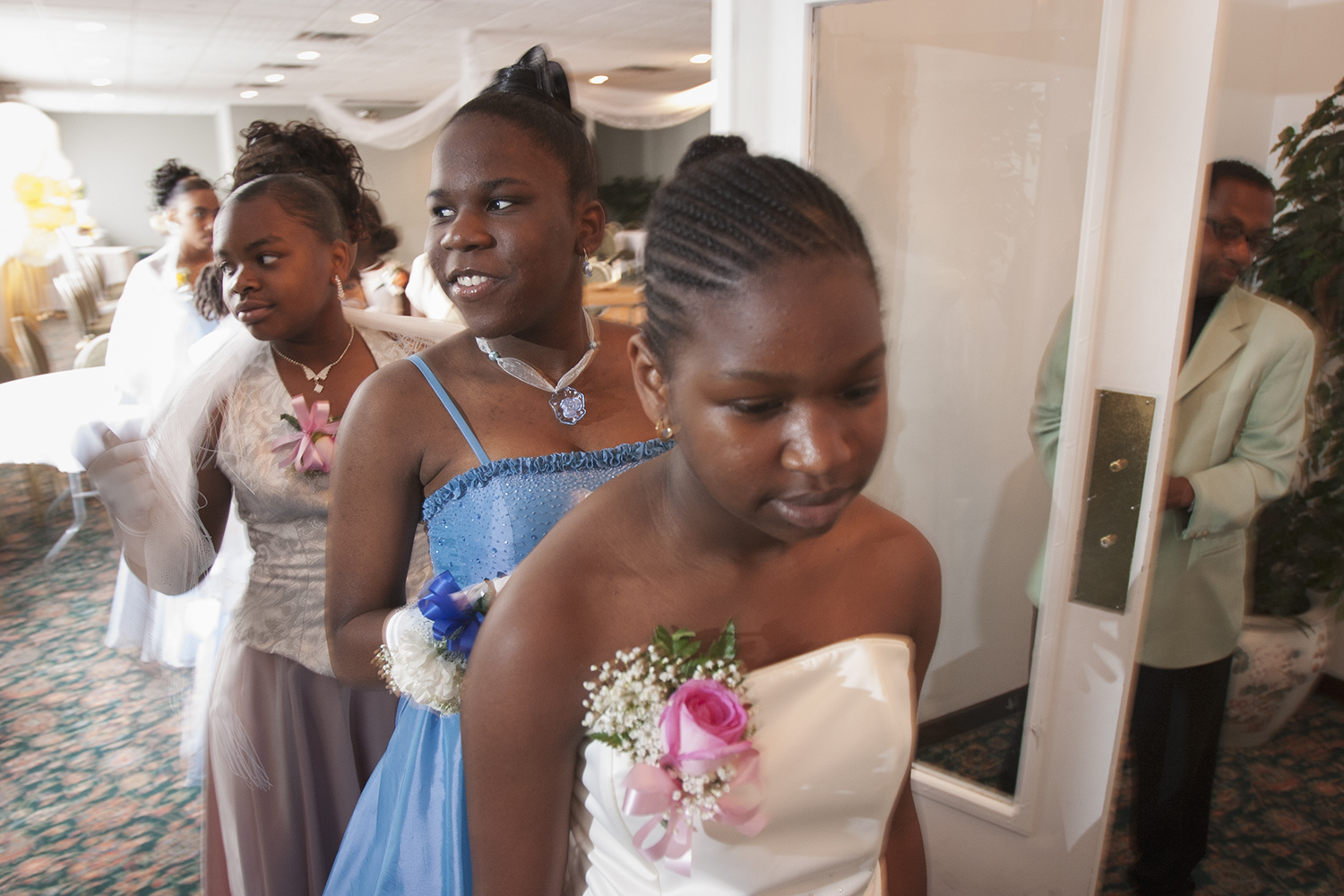
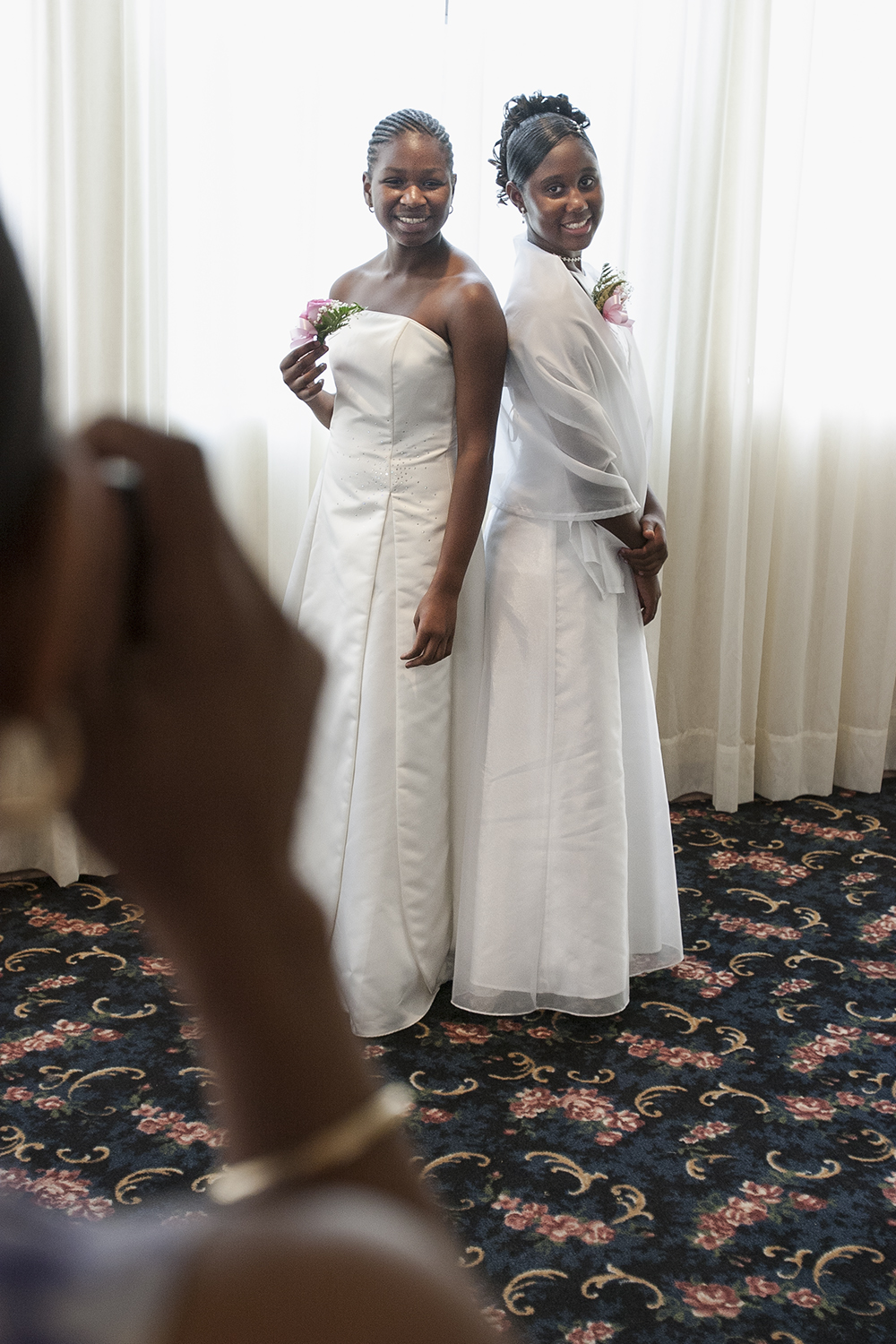

Yes, the girls were blasé some days, the teens more so than the little ones. But most focused their attention and energy when enveloped in the environment created by the instructors — school director Rose, volunteers like Mrs. Block, and Denise, a tremendously effective and sensitive thirtyish African American woman. Denise held sway on Saturday mornings with intensity and sincerity. She used examples the girls related to: What would you say to a person, say, an older white man who stepped on your foot unintentionally — and who said "excuse me" — as he walked past you on the subway? One of the teens, a statuesque girl who the others looked up to, uncorked a righteous sistah-girl, oh no you di'nt rap, cutting her eyes and cocking her head like she'd been wronged to the soul by the Man himself. She was performing for the younger girls, that was clear.
With a bemused smile, Denise gave her that — for about 30 seconds. Then she reeled the girls in to the task at hand. That's precisely what some people will expect from you, Denise told them; that's precisely what some people will use against you and the other black girls and Latinas they encounter, avoid, dismiss, quietly denigrate. Denise told the girls they had flexibility, choices, in that moment to react in ways that didn't make them stoop, ways that allowed them to express their dignity, and to exercise a kind of power over themselves and a potentially volatile, yet inconsequential situation. A polite "that's OK" or a nod of forgiveness would do.
Parents, mostly moms, were serious about DFI. Those who appeared to have more, financially speaking, as well as those who I believed to have less were committed to a clear set of goals that may have been fuzzier to their children: access, confidence, and yes, polish.
Iraq pulled me away from the DFI story. I contacted Rose, the director, now and again, but the school closed and she moved on to other projects. I'm pleased and proud to have witnessed this effort, this experiment. I can't say whether DFI profoundly shaped the lives of the girls I met, but on those Saturdays I saw joy, fun — plus some silliness and overimportance — honesty, commitment, optimism, and strength. All of this lodged somewhere deep in me. I know it helped me through the worst of my Iraq war experience. And it's still there.
